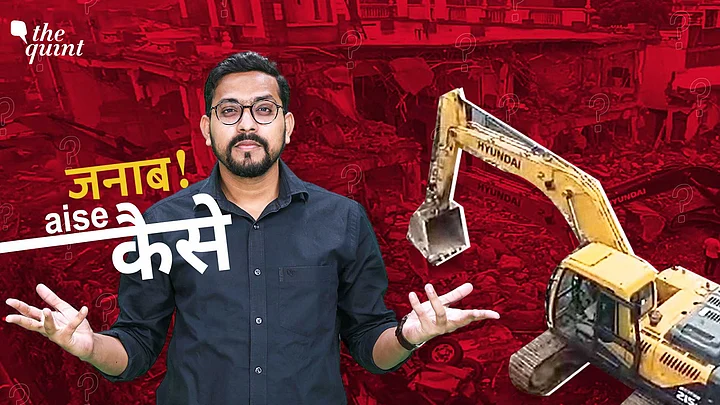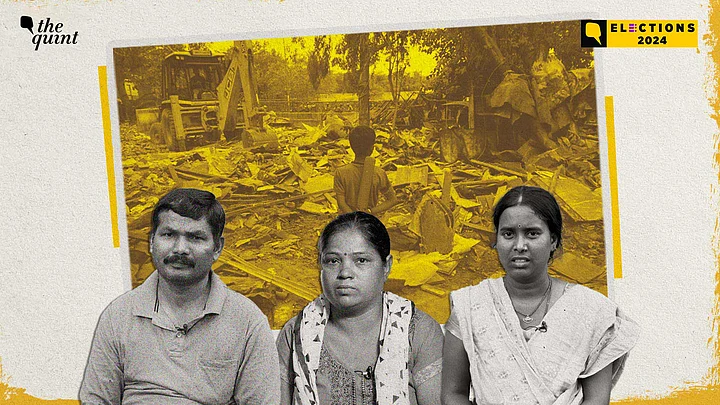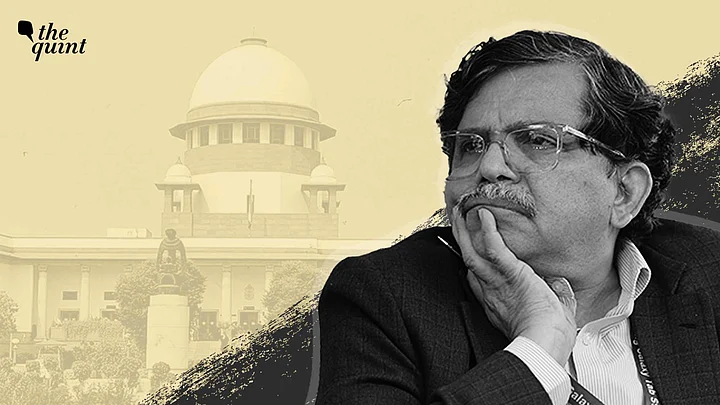On 13 November, the Supreme Court finally pronounced its verdict on the issue of arbitrary demolitions across the country.
A division bench consisting of Justice BR Gavai and Justice KV Vishwanathan laid down a set of guidelines that have to be followed if any demolition has to be carried out.
The court made it clear that just because an individual is accused, his or her property cannot be demolished without due process. Such an action by the executive, asserted the court, would be wholly arbitrary and amount to an abuse of the legal process.
This would be the first ever ruling that has directly addressed the issue of demolitions as a form of punishment. It begins with a beautiful phrase by a Hindi Poet, Pradeep, which reflects the importance of shelter in one’s life.
“To have one’s own home, one’s own courtyard – this dream lives in every heart. It’s a longing that never fades, to never lose the dream of a home.”

The court held that the executive cannot become a judge and decide for itself that an accused is guilty and punish them by demolishing their house. In Para 72, it has been specifically observed that the chilling sight of a bulldozer demolishing a building, when the authorities have failed to follow the basic principles of natural justice and have acted without adhering to the principle of due process, reminds one of a lawless state of affairs where ‘might is right’.
It is not the first time that the demolition issue was flagged before the judiciary but whenever the courts intervened, the relief acted only as an interim measure. With this ruling, it will have a long-lasting effect, not only on the demolitions but also on the procedure which has to be followed.
In Para 15, the court has rightly held that no one is above the law and everyone is equal, and that “under the constitutional framework there is no scope for arbitrariness by officials, and that no one can be punished or made to suffer in body or goods except for a distinct breach of law established in the ordinary legal manner before the ordinary courts of the land.”
The judgment acknowledged that such demolitions act as ‘collective punishment’, i.e., if a person is residing in a house in which another is the accused and the house gets demolished. In this regard:
“It is a settled principle of criminal jurisprudence as recognised in our country that a person is presumed to be innocent till he is held guilty. In our view, if demolition of a house is permitted wherein [a] number of persons of a family or a few families reside only on the ground that one person residing in such a house is either an accused or convicted in the crime, it will amount to inflicting a collective punishment on the entire family or the families residing in such structure. In our considered view, our constitutional scheme and the criminal jurisprudence would never permit the same.”
Although the judgment is significant, it will not address the real cause in cases where certain properties are demolished by labelling them as unauthorised, like what happened in the case of Akbar Nagar, Uttar Pradesh.
In this regard, the court has also clarified that the directions will not be applicable to the following: -
“At the outset, we clarify that these directions will not be applicable if there is an unauthorised structure in any public place such as [a] road, street, footpath, abutting railway line or any river body or water bodies and also to cases where there is an order for demolition made by a Court of law.”
Guidelines Laid Down by the Court
NOTICE
The first step of any demolition is a show cause or notice. The court held that no demolition should be carried out without a prior notice which will be returnable within 15 days of being served.
PERSONAL HEARING
With regard to the right of being heard (audi alter partem), the court has held that every person whose property or house is under the threat of demolition will have a right of being heard, i.e.:
That the designated authority shall give an opportunity for a personal hearing to the person concerned
That the minutes of such hearing should be recorded by the authorities
FINAL ORDER
When a person has been heard and the opportunity to present their case has been granted, then the designated authority shall pass a final order. In this regard, the Court held that the final order shall consist of:
The contentions of the notice and the disagreement of the designated authority
That whether the unauthorised construction is compoundable, if it is not so, the reasons thereof
That if the designated authority finds that only part of the construction is unauthorised/non-compoundable, then the details thereof
That as to why the extreme step of demolition is the only option available
JUDICIAL SCRUTINY OF FINAL ORDER AND APPEAL
The court also stated that if any statute provides for an appeal or a further opportunity of being heard (and even if does not), then the final order will not be implemented for a period of 15 days from the date of receipt.
The following has been directed:
That an opportunity should be given to the owner/occupier to remove the unauthorised construction or demolish the same within a period of 15 days
That before such demolition, a detailed inspection report shall be prepared by the concerned authorities and signed by two panchas
That the demolition proceedings shall be video-graphed and the concerned authority shall prepare a demolition report giving the list of police officials and civil personnel who participated
That the said report shall be sent to the Municipal Commissioner and the same shall be displayed on the digital portal
With these directions, the Supreme Court has made it clear that the demolition of the houses of accused persons cannot be done without due notice and without leaving space for the affected persons to appeal against it.
"It is not a happy sight to see women, children and aged persons dragged to the streets overnight. Heavens would not fall on the authorities if they hold their hands for some period," the court observed.
Authorities have also been warned that if these directions are flouted, the officials responsible will be liable for contempt of court and prosecution. Such officers shall be held liable to restitute the demolished property at their own cost and also pay the compensation, the top court said.
The state even made a submission before the court that in some cases, it was just a coincidence that the properties which were in breach of local municipal laws governing them, also happened to belong to the accused persons.
The court, while countering the state, rightly observed that when a particular structure is chosen all of a sudden for demolition and the rest of the similarly situated structures in the same vicinity are not even being touched, then mala fide ‘may loom large.’
Further, the court held that in cases where the authorities indulged in an arbitrary pick-and-choose of the structures, and it is established that soon before the initiation of such an action, an occupant of the structure was found to be involved in a criminal case, a presumption could be drawn that the real motive for the demolition was not the illegal structure but to penalise the accused without even trying him before a court of law.
This judgment also strengthens the right to shelter under Article 21 of the Constitution, reaffirming that no individual can be deprived of their home without following due process. Moreover, it serves as an important check on the practice of selective demolitions, where officials have been accused of targeting properties belonging to people from specific communities.
The court is now deterring actions motivated by communal or political biases.
(Areeb Uddin Ahmed is an advocate practicing at the Allahabad High Court. He writes on various legal developments. This is an opinion piece and the views expressed above are the author’s own. The Quint neither endorses nor is responsible for them.)
(At The Quint, we question everything. Play an active role in shaping our journalism by becoming a member today.)
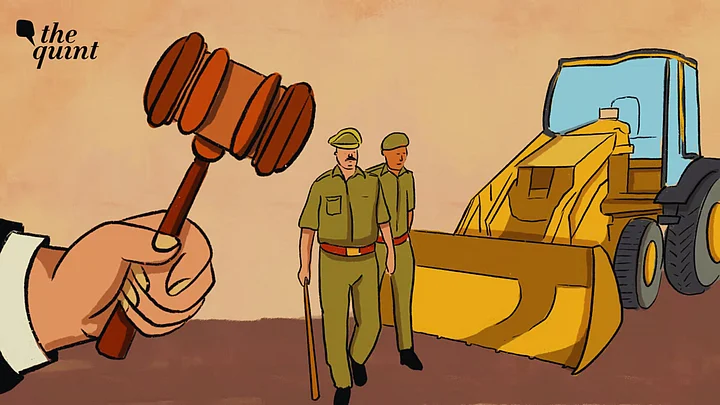
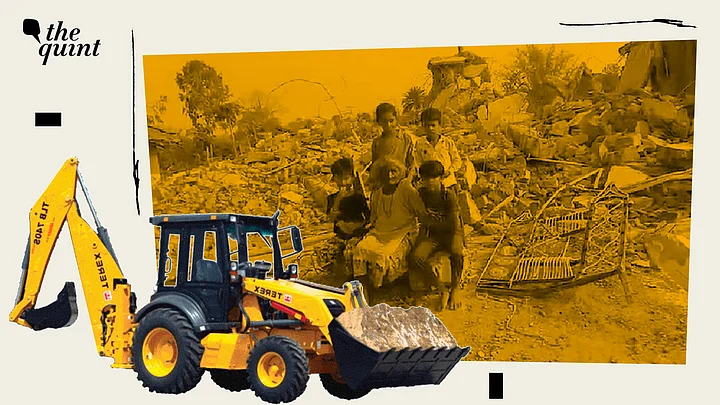
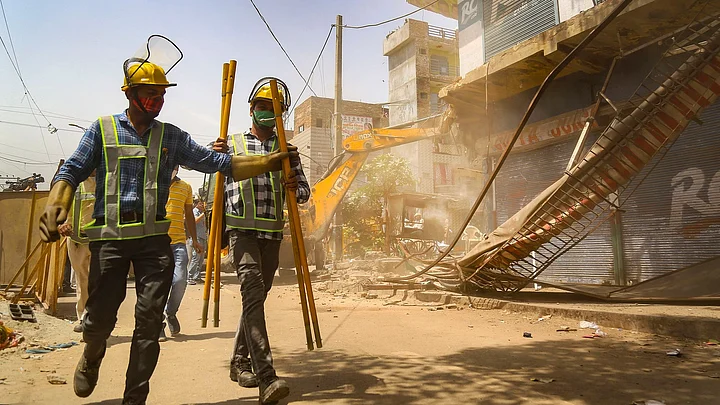
.jpg?auto=format%2Ccompress&fmt=webp&width=720)
